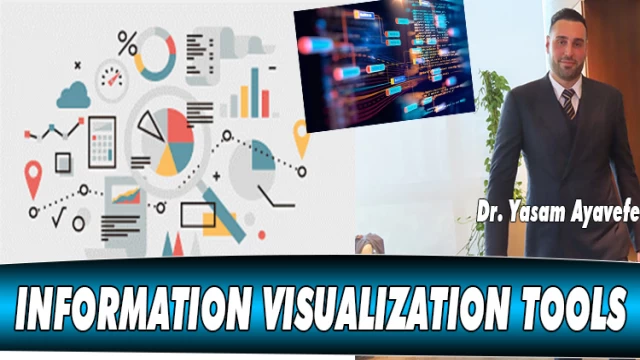Database or information visualization has become very popular on the Internet. Many are available online. It is also presented in posters that impress with their colors and aesthetics. Several years of research are behind this trend and continue to push it forward.
Although visualization is very much related to graphic design, it is based on visual perception and human fundamentals. These basics leave graphic designers room for creativity. However, it places strong restrictions on them as they are not adequately taught in graphic arts education.
Information visualization research studies the use of graphical and interactive computation to facilitate the understanding of abstract data.

This understanding often indicates that an error of interpretation, which is sometimes important, can have serious consequences. Therefore, interpretation of visualizations should be reliable and, if possible, fast.
Visual Perception and Cognition
To understand visualization, you must look at how visual perception and cognition work. Visualization has traditionally been a field of research in computer science, statistics, and cartography. But these are questions studied by cognitive psychology.
Graphical representation of quantitative data has been done for hundreds of years. But in the early 1970s it was a cartographer who laid the foundations for the graphical structure of visualization.
The entire visualization consists of signs whose visual appearance is arranged in a plane. It is governed by visual variables. Marks can take three forms: points, lines, and areas.
Six visual variables are helpful: size, density, texture density, color, direction, and shape. However, if the chart gives rules for the use of the system, it does not explain why and how the system works in terms of perception.
Contribution of Psychologists
Complying with other references in computer science, statistics, and graphic design, it has automated the conversion of data into images. In 1985, an American psychologist highlighted the reason for effective visualization.
He discovered that certain visual features can be perceived by the human eye very quickly, unconsciously and effortlessly. This feature is called fore-attention.
Therefore, looking at dots drawn on a paper or screen, it is very easy to see one or two red dots when most of the dots are blue. If you look at 10, 100, or 10,000 blue dots, the presence of a red dot is obvious.
It is shown that color pays attention to certain questions in advance. The radius of curvature is also predetermined. A square dot can easily be detected between rounded dots, provided they are large enough.
It is notable that a graphic presentation carefully answers questions beforehand. Because very quickly and almost independently of the number it becomes possible to reason on a large amount.

Conversely, the mental acquisition time of these data becomes proportional to their number if not pre-attentive. This applies to a list of city or person names in no particular order.
To know if there is a difference in the list, you should immediately read all the names as if you saw a red dot. A good visualization uses careful graphics features.
But the problem is not solved yet. Preattention features have their limits. Sometimes you need to carelessly display data beforehand. While it is easy to distinguish between blue and red, it is not possible to pre-search for colors beyond the 7 colors.
So what should be done when it is necessary to distinguish more than 7 categories?
All fore-attention traits have their limits. They mix with each other. You cannot use more than one at the same time.
Also, when displaying points representing people or cities, it is customary to display the name next to the dot. However, reading the name does not involve pre-attention and does not aid in visual search.
Yaşam Ayavefe




























Yorum Yazın